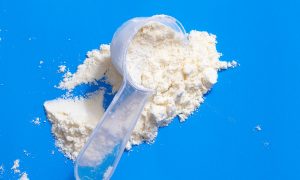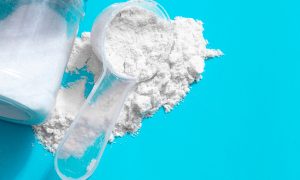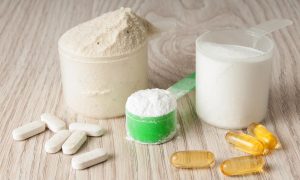Creatine: 4 Common Myths Debunked Once And For All

|
|
The health and sports supplement industry is one of the most popular, competitive, and lucrative industries on the face of the earth, generating hundreds of billions in revenue, every single year. Unfortunately the problem is that as the market is so popular and so competitive, more and more companies are attempting to tap into this market and get on board every single day. Anybody can create their own supplements with the right equipment, and unfortunately that is sometimes what happens, and as a result, the supplements that people use aren’t as effective as some companies would have them believe. As far as popular supplements go, second only to whey protein, is creatine, an amino acid that we can actually produce within our own bodies, only in small doses. Creatine has been found to be beneficial when it comes to athletic performance and exercise, and is popular amongst bodybuilders especially. There is a lot of misinformation with creatine however, and as a result, here’s a look at 4 common creatine myths which we’ll be debunking once and for all.
Creatine is bad for the kidneys
This is simply not true as studies have found that creatine when used as instructed, is perfectly fine for us and there is absolutely no evidence to suggest that it could be bad for the kidneys. We produce creatine ourselves, so that alone should help to prove that it’s not as bad as some people would have you believe. If people use too much however, then they could potentially face problems, but by that logic we could say the same about vitamin or mineral health supplements.
Creatine has to be “loaded”

Again, not true. Some companies state that you need to follow a “loading phase” for creatine, for 5 days in which you consume 5 times as much, in order to “saturate” the muscles with the creatine. In reality, studies have found that creatine is just as effective when used by beginners without the loading phase, as it was with the loading phase. Some people believe it’s a marketing scam to get people to use more of the product so that they run out quicker and have to purchase some more.
Creatine should be cycled
Another common creatine myth is that it should be cycled every six weeks or so. In reality, studies have found that not only is creatine cycling not necessary, but cycling it could actually be detrimental to your athletic performance as stores will begin to deplete from cells within the muscles after a week or so.
Creatine is a steroid
NO, NO, and NOO! Creatine is most certainly NOT a steroid and is certainly nowhere near as potent as steroids or hormones commonly used for bodybuilding and athletic performance enhancing. Creatine and steroids and hormones could not be any chemically different in structure than one another, and unfortunately this is just an ignorant claim made by people who have no understanding about diet, exercise, or sports supplementation.














